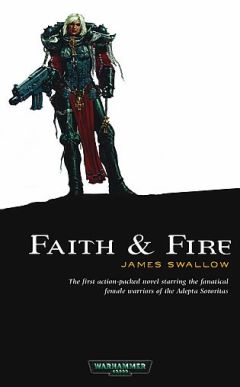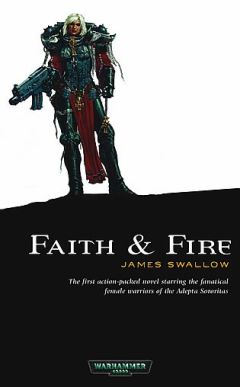Пользователь - WORLDS END
На электронном книжном портале my-library.info можно читать бесплатно книги онлайн без регистрации, в том числе Пользователь - WORLDS END. Жанр: Прочее издательство неизвестно, год 2004. В онлайн доступе вы получите полную версию книги с кратким содержанием для ознакомления, сможете читать аннотацию к книге (предисловие), увидеть рецензии тех, кто произведение уже прочитал и их экспертное мнение о прочитанном.
Кроме того, в библиотеке онлайн my-library.info вы найдете много новинок, которые заслуживают вашего внимания.

Пользователь - WORLDS END краткое содержание
WORLDS END читать онлайн бесплатно
"Uncle Jesse," explained Lanny, "Professor Alston asked me to bring him to you because he has an important proposition to put and he hopes you'll be kind enough to hear it."
The painter, of course, knew that his nephew had been avoiding him for years and that this had been at Robbie's orders. He knew also that the youth had taken a job with the peace-makers. He looked over the mild and bespectacled professor, whose physical vigor hadn't improved much under the strain of hard work in damp and chilly Paris. There was no abatement of the uncle's hostile manner as he said: "All right. What is it?"
Frankly, but at the same time tactfully, the scholar explained the efforts of the American commission to bring at least a partially sane peace out of an insane war. President Wilson was being opposed, not merely by all the jealousies and greeds and fears of Europe, but by the reactionary elements at home, the big-money interests and our newly awakened militarism. Just now there was a crisis over the subject of Russia and a decision might be taken at any hour. The President wanted to get the warring factions together in a council hall; while the French and British military men wanted invasions on a big scale.
"I don't know whether you have heard it or not," said Alston, "but Winston Churchill is in Paris now, for the purpose of urging a real war to put down Bolshevism. Foch has been demanding it from the day of the armistice, and the whole French General Staff is with him. Clemenceau is beginning to waver - and of course Lloyd George wavers all the time."
"What's the use of telling all this to me?" questioned Uncle Jesse.
The professor looked about him uneasily, and asked: "May I sit down? I have not been well."
The painter knew that he hadn't been a gentleman, and he stood up. "Have my chair," he said.
"This is all right," replied the other, and sat on the edge of the cot. Lanny pushed some books aside and rested on a corner of the table.
"Mr. Blackless, nobody in our staff at the Crillon wants any more war; and there's a group of us who are convinced that concessions have to be made and an armistice brought about in Russia before there can be any real peace. That doesn't mean that we are sympathetic to Bolshevism, but it does mean that we have studied the forces which brought on the revolution, and we don't consider it possible to set back the clock of history. My own position is entirely that of a scientist "
"What sort of a scientist?"
"I am a geographer and ethnologist, but just now I have been set the task of finding out what some of the peoples of Europe want."
"You have your hands full, Professor."
"No doubt of that; and I have the right to ask for the help of every well-meaning man."
"What leads you to think that I am well-meaning?"
"I think it of every man, Mr. Blackless, until he shows me otherwise. I assume that you don't want to see any more war in Europe."
"You assume incorrectly, Professor."
"You do want war?"
"I tell the workers to fight for their rights, and I hope they will do so until they have overthrown the capitalist system."
"But surely you can't think that the Russians can defeat the Allied armies, if they decide seriously to fight!"
"My answer is that if the Allied armies believed they could defeat the Russians, they'd be fighting right now. I take your visit as a sign that the Allied leaders are beginning to find out what the rank and file of their troops are thinking and saying. Lloyd George and Clemenceau will have to face it, and even Foch and the lineal descendant of the Duke of Marlborough."
So Lanny and his employer knew that they had found a real Bolshevik; one who could tell President Wilson exactly what was in the hearts of men and women who were risking their lives trying to make revolutions throughout Europe!
X
Jesse Blackless appeared to be showing the effects of mental strain. The lines around his eyes were more plentiful and those at the sides of his mouth more deeply graven. He was balder than ever, but the bare scalp wasn't so bronzed - he had, presumably, been living in cities and wearing a hat. He was even more gaunt and his voice seemed hoarse, as if he had been talking a lot. Doubtless he had much to say to proletarians, as he called them; but with bourgeois persons like Lanny and his chief he didn't care to be bothered - or so his manner seemed to say. He didn't argue, he told you, and there came that disagreeable twist of the mouth. Lanny had always disliked this strange man, and did now; but he had to admit that he had convictions and stood by them.
Just now the painter was convinced that the Bolsheviks had Central Europe in their grasp. He announced it defiantly; but Alston, who had inside knowledge, stopped him with the remark: "That is all right for a stump speech or a manifesto; but are you sure it's the attitude of Lenin? Mightn't it be that he'd like a little time to collect his forces?"
The painter eyed his visitor sharply, and decided to take a different tone. "Just what is it you propose, Professor?"
"First, that you should understand me. I know you are suspicious, and doubtless you have reason in many cases. But you waste time if you suspect me. I am a scholar who doesn't like bloodshed and has come over here to help make peace. In this visit to you I have no authority from anybody. I came on my own impulse, when Lanny told me about his uncle. Knowing the situation at the Crillon, I thought some of my superiors might like to confer with you."
"A fine time I'd have explaining to my friends if I took up with the Crillon!"
"Don't your friends trust you, Mr. Blackless?"
"A certain distance; but not that far!"
"There's no reason why you shouldn't tell them in advance that you are going, and why. There is nothing secret about my visit. You will see that I ask you no questions - who your associates are, or anything of that sort. I take it for granted that you may know where to find some persons who are in touch with the Bolsheviks and could discuss with us the basis for a conference."
"Suppose I should go to the Crillon and not come out again?"
The professor smiled. "Be reasonable, Mr. Blackless. Undoubtedly the French military authorities know your address, and can come here just as well as I can. That goes for the Americans also. I can't give you any guarantees - except that anything that happens to you won't be of my doing. On the other hand, if the Crillon should invite you to come and talk to them, it would certainly be a bona-fide invitation to a conference and would confer immunity upon you for the time being."
Said Jesse Blackless: "I think the man you need to talk with is Sazonov." This was the former Foreign Minister of the Tsar, now in Paris, and the remark was, of course, a sneer.
"We don't have to go to any of the Whites," replied Alston, patiently. "They come to us in droves. They tell us they will have nothing to do with assassins and bloody-handed murderers, and so on. They demand that we give them unlimited arms and money so that they can crush the Reds. That happens to be the idea of the military men, including some of the Americans, I am sorry to say. But fortunately it is the civil authorities who have the decision. Trust me, Mr. Blackless, and help me to get your point of view before the Council of Ten, right now while the subject is up for settlement."
"You mean, it's your idea that the Bolsheviks shall come to Paris and sit down with the Whites?"
"Not in Paris - Clemenceau would never allow that. It would be somewhere close to Russia, and far from here."
"You think the Whites would come?"
"I'll put it crudely, Mr. Blackless, as you seem to prefer. The Allies are the paymasters."
Uncle Jesse smiled one of his crooked smiles. "And you imagine that we would give up to the Whites - is that it?"
"At a conference, Mr. Blackless, both sides have to give up something, unless the conference is to fail. But first there has to be a conference - that is the most difficult point."
The painter considered for a while longer. Finally he said: "All right, Professor. I'll talk to some other persons, and let you hear from me in a few hours."
28
The Red Peril
I
THERE were five members of the American Commission to Negotiate Peace. President Wilson was of course its head, and the French government had lent him a palace to stay in, the home of the Princess Murat. The second member was Mr. Lansing, Secretary of State, who did not agree with his chief about the League or anything else very much; he was a lawyer, and thought that things ought to be done according to juridical formulas which he had learned. He spent his time recording his objections in a diary; also making comical little sketches of the other diplomats. To him and his fellow members had been assigned apartments on the second floor of the Crillon, looking out on the Place and having the highest ceilings, the biggest chandeliers, and the most gilt and pink upholstery.
One of these others was General Bliss, a bluff and kindly old soldier who gave good practical advice when asked. Another was a veteran diplomat, Mr. Henry White, who owed his appointment to the fact that etiquette required that the Republican party should have representation on the Peace Commission. Mr. White was so old that the Republicans had forgotten him, but he was in the history books and nobody could question his credentials. He had been in Paris at the time of the Franco-Prussian War and the Commune, nearly fifty years back, and he liked to drive people around and show them the places and tell what he had seen; but he wasn't seeing very much now.
The fifth member was of a retiring nature, but that didn't prevent his suite from becoming the most frequented of all. Two naval yeomen in uniforms and white caps stood guard at the door, and in the anterooms you would see the great ones of the earth coming and going at all hours, and many cooling their heels, waiting in hope of an interview. The name of this commissioner was Colonel House. He was not a military man, but the kind known as a "Kentucky colonel" - although he came from Texas. He was a frail little gentleman of sixty or so, and had never enjoyed health enough to be a warrior, or even to engage in the turmoil of politics; he didn't like crowds and shrank from publicity as a mole from sunlight. What he liked to do was to consult and advise and persuade; he liked to sit behind the scenes and pull wires and manipulate the actors. Being wealthy, he could indulge in this hobby; he had made several governors of his home state, and then had picked out the head of a college as a likely "prexy" for the forty-eight states. He had promoted him and "put him over," and was now his friend and authorized agent in most of the peace negotiations.
He had come to Europe before the outbreak of the war. He had come more than once during the conflict, trying to work out ways to end it. He was gentle and unassuming, and never sought anything for himself; people compared him to a little white mouse - and right now the words of this mouse were backed by most of the money and most of the food in the world. America had financed the last year and a half of the war, and America must finance whatever peace there was to be. What did America want? What would America accept? The answer was: "See Colonel House."
So it came about that through the doors where stood the naval yeomen, polite yet impressive with their side-arms, came diplomats and politicians and journalists from pretty nearly every nation of the earth. In those anterooms you saw uniforms worthy of the most expensive grand opera production: gold and cream and scarlet, rose-pink, sky-blue. You saw civilian costumes out of the gorgeous East, Near and Far: burnooses, mantles, and togas, turbans, fezzes, and sugarloaf hats. You saw Koreans and Malayans, Kabardians and Lezghians, Buriats and Kirghiz, Kurds, Persians, Georgians, Azerbaijan Moslems, Assyrian Christians, and all the varieties of Syrians - Moslem, Druse, and Greek Orthodox. Had ever in the history of Texas a stranger fate befallen one of its sons than to be receiving this stream of day and night callers, and to know that his smile was a matter of life and death to their peoples?
II
To this Mecca of peace-seekers now came Professor Alston, bringing the tidings that he had established contact with certain of the extremely elusive Bolshevik agents in Paris. Might it be that this would offer to President Wilson and his staff an opportunity of sounding out the revolutionaries and judging the probabilities of success for any conference?
The little white mouse found that interesting. It was the sort of thing he liked to do. He pinned his faith upon quiet talks and understandings among key people. That was the way the Democratic party was run in Texas; that was the way a college president had been nominated for President of the United States; that was the way peace was now to be brought to Europe. When the details had been agreed upon, the results would be proclaimed, and that would be "open covenants openly arrived at."
Of course these revolutionaries couldn't come to the Crillon. Where had Alston met this painter? The professor described the room, and the Texas colonel smiled and asked if it would be possible to get some extra chairs into it. He said they would go that very evening, as soon as he could get away from a reception he had promised to attend. He told the professor where and when to call for him. They would say nothing to anybody about it; they would take along Alston's translator, who already knew about it. The colonel didn't speak French, unfortunately, and it might be that the Bolsheviks wouldn't know English.
A first-class thrill for a youth just embarked upon a diplomatic career. He was going to the top right at one bound! He was going to help with the most exciting problem of the conference; to have a hand in settling the destinies of a hundred and forty million people - and incidentally to shake the gory paws of those murderers, assassins, fiends in human form, creatures whom the resources of the English language were inadequate to describe. So Lanny had been hearing, and he pictured them as pirates with bushy black whiskers, and pistols and daggers in their belts. He hurried off to tell his uncle of the appointment and make sure the little white mouse wouldn't have to sit on the cot!
Uncle Jesse said he could borrow chairs from neighbors in the tenement. "We poor help each other out," he explained, with one of his wry smiles. He added: "Keep your eyes open, Lanny, and see if you can't learn something."
"Thank you, Uncle Jesse," replied the youth. "I'm learning a lot, really."
"It won't please your father," continued the other. "I've known him since before you were born, and I've never known him to learn anything. He's going to be an unhappy man, with the world changing as it is."
Lanny wouldn't discuss his father with this uncle whom he didn't like. But he went off thinking hard, and wondering: Was Robbie really narrow-minded and set in his opinions? Or was this Bolshevik propaganda?
III
That evening Alston and his secretary strolled to the Hotel Majestic, residence of the British delegation, where a grand reception was being held. Promptly at eleven the colonel emerged, and a sturdily built man in civilian clothes fell in behind him and accompanied him to his car, and, after the others had got in, took his seat alongside the chauffeur. So far as Lanny knew, this man never spoke once, but he watched, and no doubt had a gun handy.
Похожие книги на "WORLDS END", Пользователь
Пользователь читать все книги автора по порядку
Пользователь - все книги автора в одном месте читать по порядку полные версии на сайте онлайн библиотеки My-Library.Info.



